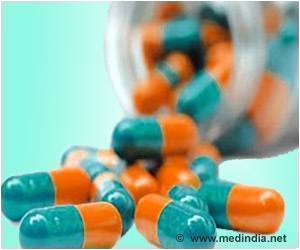An experimental drug that boosts production of the immune system protein interferon worsens tuberculosis (TB) in mice, scientists from the National Institutes of Health have found.
An experimental drug that boosts production of the immune system protein interferon worsens tuberculosis (TB) in mice, scientists from the National Institutes of Health have found.
The drug acts indirectly by drawing certain immune cells, in which Mycobacterium tuberculosis (M.tb) bacteria thrive, to the lungs.The findings may have potential implications for the care of people infected with TB, the authors noted.
"Although our research was conducted in mice, our combined findings suggest that reactivation of TB should be considered as a potential side effect if compounds that boost type I interferon production, like the one used in this study, are tested in people who may be infected with M.tb," said Alan Sher, of the National Institute of Allergy and Infectious Diseases (NIAID), NIH, who led the team of scientists.
Most people infected with M.tb do not develop active TB. Instead, the infection remains dormant, often for decades. Eventually, about 10 percent of people with latent infection do go on to develop active disease. Common triggers for reactivation include aging or other conditions that lower immunity.
Sher and his colleagues studied the effects of an experimental drug called poly-ICLC on immune responses to TB infection.
The research is reported in the May 3 issue of Journal of Clinical Investigation.
Advertisement
RAS













